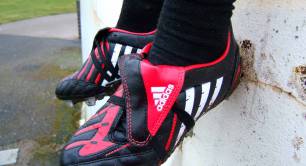How would independence affect Scotland’s social enterprises?
Hopes and fears are side by side as the future of Scotland hangs in the balance. Ellie Ward looks in on the Scottish social enterprise scene and asks what a 'Yes' vote would mean.
On September 18th, people will flock to polling stations all over Scotland to vote on whether they want to remain a part of the UK or abandon ship and become an independent country.
Commentators and academics from virtually all sectors have tried to predict the potential effects an independent Scotland would have on everything from the UK’s economy to Team GB, the Olympic squad. Now it is time to put Scotland’s social enterprise landscape under the microscope.
Smaller, newer and self-contained
The Scottish social enterprise landscape is extremely diverse, containing almost 600 democratically owned businesses or ‘co-operatives’ with a turnover of over £4 billion a year and 161 housing associations providing more than 277,000 homes.
These businesses are helping to transform lives...and create a more sustainable Scotland for the long term.
It is smaller than its English counterpart and enjoys numerous benefits as a result of this, according to social entrepreneur Paul Holmes. For example, he tells Pioneers Post that Scottish social enterprises tend to face less competition for declining financial resources, and a less crowded sector means that there are increased levels of opportunity for enterprises to diversify into other income generating areas or to become the dominant enterprise in specific sectors.
Duncan Thorp, parliamentary, policy and communications officer at Social Enterprise Scotland, says, “Scotland’s innovative social enterprises are taking forward a radical programme of social and environmental change across our communities. These businesses are helping to transform lives, go beyond traditional models of delivery and create a more sustainable Scotland for the long term.”
Short-term uncertainties
One of the key concerns for social enterprises if Scotland were to become independent is the transition phase, which would inevitably follow the referendum. There are numerous grey areas in the proposed blue print of what exactly an independent Scotland would consist of, for example the conflicting views among politicians regarding what currency Scotland would use.
Paul Holmes, the acting volunteer CEO at Kelvin Valley Honey, a social enterprise in the RBS SE100 Index, summarises this seemingly inevitable level of uncertainty. He says that, "fundamental changes in circumstances frequently result in reduced levels of individual and organisational confidence.” He anticipates that a loss of confidence “may well be considerably increased in Scotland and more so in the social enterprise sector" given the uncertainty surrounding the impacts of independence in so many crucial areas.
Carl Hodson, general manager at Glencraft, says: "There has been very little information provided to the Third Sector in our opinion on the effects of independence or indeed the changes being muted after a ‘no’ vote. We are unsure what happens to any financial support via Department for Work & Pensions, Grant funding under EU or UK monies etc. There has also been no information for some charities who rely on UK fundraising or National Lottery (UK based lottery)."
Glencraft is a trading social enterprise based in Aberdeen that manufactures and supplies furniture and mattresses. Carl Hodson is concerned that this uncertainty could put current and potential investors off wanting to engage with the social venture he manages. "We have noticed a deliberate ‘let’s wait and see what happens’ attitude amongst customers and suppliers’ with some investment into new projects being delayed," he says.
Common sense...is likely to break out fairly soon, once the political breast-beating phase has ended.
Alex Walker is the chairman of Ekopia Resource Exchange, which is a community benefit cooperative that provides a variety of services, including the creation of affordable housing projects.
He says a ‘yes’ vote victory “may make individuals in the UK less likely to want to invest with us in the short term as there are likely to be post-referendum/pre-independence uncertainties”. However, the chairman of Ekopia considers this a potential temporary glitch and is not worried.
“I don’t perceive any significant likelihood of a direct impact on Ekopia as a result of a ‘yes’ vote…my sense is that common sense over the use of the pound and EU membership for example, is likely to break out fairly soon, once the political breast-beating phase has ended,” he says.
Increased political access
The relationships between social enterprises and political figures are key to ensuring that policy supports and nurtures the sector. Alex Walker says that, “Access to senior figures in the Scottish Government in the post-1997 devolution period has been good and is increasing."
“The future is an uncertain place but were Scotland to become independent I imagine that such access and influence would increase and were that Government to continue to have a social democratic flavour and to be less in thrall to the global banking system than Westminster, that may well produce positive long-term dividends."
In his list of ‘positive’ impacts on social enterprises if Scotland were to become independent, Paul Holmes mirrors this point, detailing, “Easier access and ability to influence policy/decision makers at a national level” as one of the outcomes of a ‘yes’ vote.
The cabinet secretary for finance, employment and sustainable growth in the Scottish government, John Swinney MSP, illustrated this point recently. He tweeted that he had a "fantastic evening" with private, public and third sector representatives collaborating to grow social enterprise at the Social Enterprise Exchange Leadership Dinner which was held in Glasgow.
Tighter bonds, increased determination and unshakable resilience
The dominant narrative surrounding independence tends to be one that focuses on the break-up of a nation and increased levels of disunity. However increased levels of unity could also arise following independence.
Paul Holmes says that newly achieved independence can bring people and organisations closer together “in their determination for it to succeed” and can also result in “an increased willingness to compromise in delivering mutually agreed goals and subscribing to shared values".
More a case of steady as she goes than all hands abandon ship.
Formed in 1859, the Kibble Education and Care Centre, has seen significant social upheaval including two world wars and many other skirmishes. Graham Bell, Kibble’s chief executive, says: “It would be fair to say that our board remain sanguine about any outcome.”
“For either outcome we actually expect little direct impact on our work…with our services already devolved, and indeed having always operated in a different way from the rest of the UK, there are unlikely to be any major policy shifts that directly affect our work.”
Social enterprise landscape stable
It is impossible to predict exactly how the social enterprise sector will be affected if Scotland were to become independent, however there is a general sense that the biggest problem facing Scottish social ventures is the level of uncertainty that exists around numerous issues.
Despite this uncertainty and the implications it may have on putting off investors, there is a general sense that that the social enterprise sector will remain relatively stable. Graham Bell says: “Politicians of all shades have been generally supportive of social enterprise. In Scotland there is undoubtedly more vocal support for social enterprises that have asset locks and are non-profit distributing but that is true of those on both sides of the independence debate.”
The voluntary CEO of Kelvin Valley Honey says: “Whatever the outcome, be it yes or no, frankly I believe that it will not lead to the substantial changes in the way the sector operates as some people both inside and outside the sector are predicting. More a case of 'steady as she goes than all hands abandon ship."



